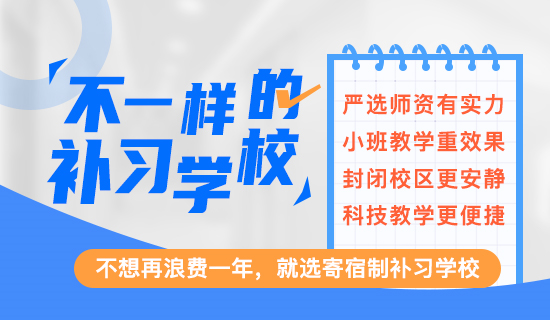中考是检验初中三年学习成果的考试,要想在中考崭露头角,初中三年得打好基础。英语单词、句式繁多,更要在平时多用时间来复习总结。今天伊顿教育小编跟大家分享的是代词的语法聚焦。更多教育资讯与辅导资料,欢迎关注伊顿教育网站初中英语栏目。
 三.代词:
三.代词:
I.
代词可以分为以下七大类:
II. 不定代词用法注意点:
1. one, some与any:
1) one可以泛指人,也可特指,复数为ones。some多用于肯定句,any多用于疑问句和否定句。
One should learn to think of others.
Have you any bookmarks? No, I don’t have any bookmarks.
I have some questions to ask.
2) some可用于疑问句中,表示盼望得到肯定的答复,或者表示建议,请求等。
Would you like some bananas?
Could you give me some money?
3) some 和any修饰可数名词单数时,some表示某个,any表示一个。
I have read this article in some magazine.
Please correct the mistakes, if any.
4) some和数词连用表示“大约”,any可与比较级连用表示程度。
There are some 3,000 students in this school.
Do you feel any better today?
2. each和every:
each强调个别,代表的数可以是两个或两个以上,而every强调整体,所指的数需要是三个或三个以上。
Each student has a pocket dictionary. / Each (of us) has a dictionary. / We each have a dictionary.
Every student has strong and weak points. / Every one of us has strong and weak points.
3. none和no:
no等于not any,作定语。none作主语或宾语,代替不可数名词,谓语用单数,代替可数名词,谓语单复数皆可以。
There is no water in the bottle.
How much water is there in the bottle? None.
None of the students are (is) afraid of difficulties.
4. other和another:
1) other泛指“另外的,别的”常与其他词连用,如:the other day, every other week, some other reason, no other way,
the other特指两者中的另外一个,复数为the others。如:
He held a book in one hand and his notes in the other.
Two students in our class failed, but all the others passed the exam.
2) another指“又一个,另一个”无所指,复数形式是others,泛指“别的人或事”如:
I don’t like this shirt, please show me another (one).
The trousers are too long, please give me another pair / some others.
Some like football, while others like basketball.
5. all和both, neither和either
all表示不可数名词时,其谓语动词用单数。both和all加否定词表示部分否定,全部否定用neither和none.
All of the books are not written in English. / Not all of the books are written in English.
Both of us are not teachers. / Not both of us are teachers. / Either of us is a teacher.

I.
代词可以分为以下七大类:
| 1 | 人称代词 | 主格 | I, you, he, she, it, we, you, they |
| 宾格 | me, you, him, her, it, us, you, them | ||
| 2 | 物主代词 | 形容词性 | my, your, his, her, its, our, their |
| 名词性 | mine, yours, his, hers, its, ours, theirs | ||
| 3 | 反身代词 | myself, yourself, himself, herself, itself, ourselves, yourselves, themselves | |
| 4 | 指示代词 | this, that, these, those, such, some | |
| 5 | 疑问代词 | who, whom, whose, which, what, whoever, whichever, whatever | |
| 6 | 关系代词 | that, which, who, whom, whose, as | |
| 7 | 不定代词 | one/ some/ any, each/ every, none/ no, many/ much, few/ little/ a few/ a little, | |
| other/ another, all/ both, neither/ either | |||
II. 不定代词用法注意点:
1. one, some与any:
1) one可以泛指人,也可特指,复数为ones。some多用于肯定句,any多用于疑问句和否定句。
One should learn to think of others.
Have you any bookmarks? No, I don’t have any bookmarks.
I have some questions to ask.
2) some可用于疑问句中,表示盼望得到肯定的答复,或者表示建议,请求等。
Would you like some bananas?
Could you give me some money?
3) some 和any修饰可数名词单数时,some表示某个,any表示一个。
I have read this article in some magazine.
Please correct the mistakes, if any.
4) some和数词连用表示“大约”,any可与比较级连用表示程度。
There are some 3,000 students in this school.
Do you feel any better today?
2. each和every:
each强调个别,代表的数可以是两个或两个以上,而every强调整体,所指的数需要是三个或三个以上。
Each student has a pocket dictionary. / Each (of us) has a dictionary. / We each have a dictionary.
Every student has strong and weak points. / Every one of us has strong and weak points.
3. none和no:
no等于not any,作定语。none作主语或宾语,代替不可数名词,谓语用单数,代替可数名词,谓语单复数皆可以。
There is no water in the bottle.
How much water is there in the bottle? None.
None of the students are (is) afraid of difficulties.
4. other和another:
1) other泛指“另外的,别的”常与其他词连用,如:the other day, every other week, some other reason, no other way,
the other特指两者中的另外一个,复数为the others。如:
He held a book in one hand and his notes in the other.
Two students in our class failed, but all the others passed the exam.
2) another指“又一个,另一个”无所指,复数形式是others,泛指“别的人或事”如:
I don’t like this shirt, please show me another (one).
The trousers are too long, please give me another pair / some others.
Some like football, while others like basketball.
5. all和both, neither和either
all表示不可数名词时,其谓语动词用单数。both和all加否定词表示部分否定,全部否定用neither和none.
All of the books are not written in English. / Not all of the books are written in English.
Both of us are not teachers. / Not both of us are teachers. / Either of us is a teacher.



